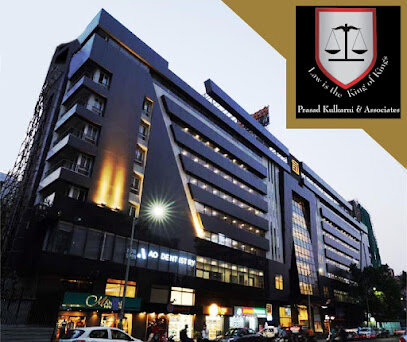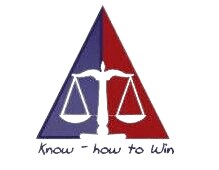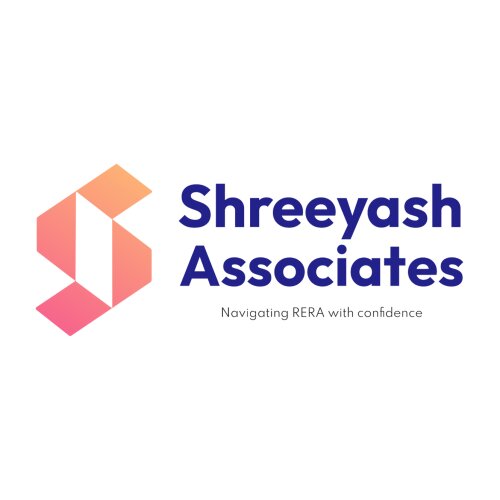Best Appeal Lawyers in Pune
Share your needs with us, get contacted by law firms.
Free. Takes 2 min.
List of the best lawyers in Pune, India
About Appeal Law in Pune, India
Appeal law in Pune, a bustling city in the Indian state of Maharashtra, involves the process wherein a higher court is asked to review and change the decision of a lower court. This legal pathway is crucial as it provides a mechanism for rectifying errors and ensuring justice. Appeals may arise from both civil and criminal cases, with specific procedures and timelines dictated by the type of case and the courts involved.
Why You May Need a Lawyer
Navigating the complexities of filing or responding to an appeal can be daunting without expert guidance. Here are some common situations where legal help may be required:
- Adverse Judgment: If you believe a lower court’s decision was incorrect and want to challenge it.
- Procedural Errors: If there were significant procedural mistakes during your trial that affected the outcome.
- Misinterpretation of Law: If you think the law was misapplied in your case.
- Evidentiary Issues: If important evidence was excluded or improper evidence was included, impacting the judgment.
- Fairness in Trial: If you feel the trial was unfair or biased.
Local Laws Overview
Pune operates under the jurisdiction of Maharashtra state law and the Indian legal framework. Key aspects include:
- Code of Civil Procedure (CPC), 1908: Governs appeals in civil cases, delineating the specific courts that handle appeals and the procedures to follow.
- Code of Criminal Procedure (CrPC), 1973: Provides the procedural laws for appeals in criminal cases.
- Limitation Act, 1963: Highlights the time limits for filing an appeal. These limits are critical and missing them can forfeit your right to appeal.
- Judicial Hierarchy: Understanding the hierarchy is vital, with appeals flowing from District Courts to High Courts, and in some cases, to the Supreme Court of India.
Frequently Asked Questions
1. What is an appeal?
An appeal is a legal procedure where a higher court reviews the decision of a lower court to determine if there were errors in the application of the law that significantly affected the outcome.
2. How long do I have to file an appeal?
The time limit for filing an appeal varies by case type. Generally, it ranges from 30 to 90 days, depending on the specifics of the judgment and the court involved. Consult with a lawyer to determine the exact timeframe for your case.
3. Can I introduce new evidence during an appeal?
Typically, appeals are limited to reviewing the record from the lower court's proceedings. Introducing new evidence is rare and usually only permitted if it is critical and was unavailable during the original trial.
4. What if I cannot attend court due to personal reasons?
You may request an adjournment or your lawyer can represent you in court. However, consistent absence without a valid reason can negatively impact your appeal.
5. What are the costs involved in filing an appeal?
Costs vary based on the complexity of the case, legal fees, court fees, and other incidental expenses. It's best to discuss the cost structure with your lawyer upfront.
6. What is the success rate of appeals?
The success rate can vary widely depending on the specifics of each case, the grounds for appeal, and the quality of legal representation. Statistics on success rates are not universally available and can be case-specific.
7. Do I need a lawyer to file an appeal?
While not legally required, having an experienced lawyer is highly advisable due to the legal expertise needed to navigate appeal procedures successfully.
8. What happens if an appeal is dismissed?
If an appeal is dismissed, the lower court's decision stands. You might have other legal recourses, such as filing a special leave petition to the Supreme Court, depending on your case.
9. How long does the appeal process take?
The duration can vary significantly. Simple cases might be resolved in a few months, while complex cases can take years. Delays in the judicial system can also impact timing.
10. Can I appeal a decision from an intermediary court?
Yes, decisions from intermediary courts can often be appealed to higher courts, like the High Court or the Supreme Court, depending on the jurisdiction and legal stipulations.
Additional Resources
Here are some resources and organizations that can be helpful:
- Maharashtra Legal Services Authority: Provides free legal aid to those eligible.
- High Court of Bombay: The appellate authority for many cases in Pune.
- Pune District Court: For local matters and initial appeals.
- Bar Council of Maharashtra and Goa: To find accredited lawyers in Pune.
- Legal Aid Clinics: Often associated with law colleges, providing free services.
Next Steps
If you need legal assistance with an appeal, consider the following steps:
- Consult a Lawyer: Find a lawyer specialized in appeals. Initial consultations are often free or low-cost.
- Gather Documentation: Collect all relevant documents and records from the lower court's proceedings.
- Understand Timelines: Be aware of your deadlines for filing the appeal to avoid forfeiture.
- Explore Legal Aid: If cost is a concern, seek help from legal aid organizations for assistance.
- Stay Informed: Keep communication lines open with your lawyer and stay informed about the progress of your case.
Taking these steps will help ensure that you’re well-prepared and supported throughout the appeal process.
Lawzana helps you find the best lawyers and law firms in Pune through a curated and pre-screened list of qualified legal professionals. Our platform offers rankings and detailed profiles of attorneys and law firms, allowing you to compare based on practice areas, including Appeal, experience, and client feedback.
Each profile includes a description of the firm's areas of practice, client reviews, team members and partners, year of establishment, spoken languages, office locations, contact information, social media presence, and any published articles or resources. Most firms on our platform speak English and are experienced in both local and international legal matters.
Get a quote from top-rated law firms in Pune, India — quickly, securely, and without unnecessary hassle.
Disclaimer:
The information provided on this page is for general informational purposes only and does not constitute legal advice. While we strive to ensure the accuracy and relevance of the content, legal information may change over time, and interpretations of the law can vary. You should always consult with a qualified legal professional for advice specific to your situation.
We disclaim all liability for actions taken or not taken based on the content of this page. If you believe any information is incorrect or outdated, please contact us, and we will review and update it where appropriate.














